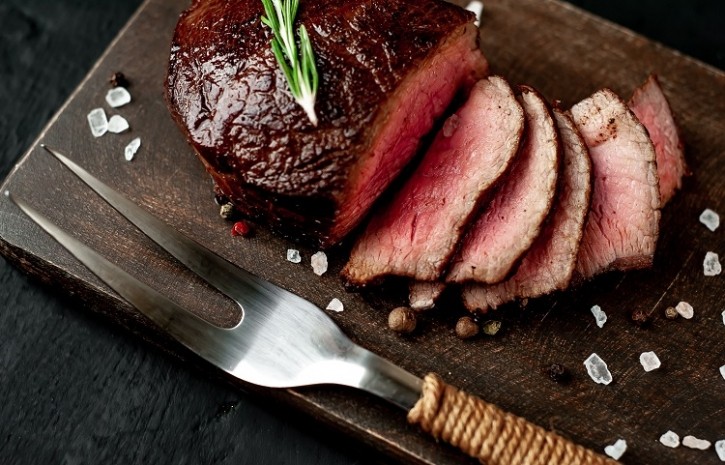The 'carnivore' diet trend: what is it and can it be profitable?

If you haven’t heard of it yet, then allow us to introduce the new and fast-growing consumer trend, the carnivore diet. Also known as the meat-only diet, the carnivore diet has grown in popularity. But what is it?
What is the carnivore diet?
The carnivore diet is one consisting of animal products, including meat, fish, eggs, animal fats and small amounts of low-lactose dairy products. It’s high in protein and fat, and low in carbohydrates. It excludes all other foods, including fruits, vegetables, legumes, grains, nuts and seeds.
Read more: The new industry term open-omnivore
Why has the carnivore diet become so popular?
Plant-based has dominated headlines in recent years, so the carnivore diet is a contrast almost out of the blue.
Behind its success – or at least one of the factors – is the rise of celebrity influencers who have adopted the diet and taken to social media to extol its virtues. In particular, podcaster, Joe Rogan, has been vocal in his support of the diet.
“The growth in popularity of the carnivore diet can be largely attributed to the powerful influence of social media, particularly platforms like TikTok, where trends can spread rapidly and where content creators may gain better engagement with controversial or extreme views on nutrition,” Kyle Crowley, nutrition expert at protein brand, Protein Works, told FoodNavigator.
And what’s social media calling these influencers? ‘Meatfluencers’, of course. And such is their power, that Google search volume for the carnivore diet has risen by 87% over the past year.
“The rise of ‘meatfluencers’ who advocate for this diet by showcasing personal success stories – such as significant muscle gain, enhanced energy levels, and improved mental clarity – has created a strong community around the diet,” says Crowley.
Morever, the fact that social media is being credited for the emergence and growth of the carnivore diet, likely explains the reason that it’s most popular amongst younger generations, in particular, millennials and Gen Z, who are highly active on social media platforms.
“This demographic is often more experimental with diets and wellness trends, driven by a desire for quick results and the influence of online communities,” explains Crowley. “However, it’s also gaining traction among middle-aged adults, particularly those looking to address weight management or chronic health issues through diet."
And speaking of weight, it appears that the adoption of this diet could also be the result of consumers looking for a more simplified way to slim down.
“The diet’s simplicity, which eliminates the need to count calories or macros, appeals to those seeking a straightforward approach to eating,” says Crowley. “The current cultural shift towards questioning established dietary norms and experimenting with alternative health trends has fuelled interest in this unconventional approach to nutrition.”
The unexpected rise in meat consumption will be welcome news to the meat industry, which has faced mounting challenges and increased opposition from environmentalists and animal-rights campaigners. But will it last?

Is the carnivore diet just a fad?
As with all food trends, it’s likely the carnivore diet will continue to rise in popularity, before it plateaus. However, with continued support from high-profile names across social media, and its association to weight loss, it will likely continue to prove popular.
The meat industry’s global revenue will grow to 1,965 billion USD by the end of the decade, indicating the strength of the industry as a whole, according to Statista.
However, there are concerns amongst nutritionists and health experts that the carnivore, or meat-only, diet could be detrimental to health.

What are the drawbacks to the carnivore (meat-only) diet?
The extreme nature of the carnivore diet, removing entire food groups, has raised concerns that it could increase the risk of malnutrition amongst its adopters.
“The meat-only diet is generally considered extreme due to its highly restrictive nature,” says Crowley. “By eliminating all plant-based foods, followers of the diet miss out on essential nutrients found in fruits, vegetables, grains, and legumes, leading to potential nutrient deficiencies and other health risks.”
Diets that are high in protein have also been linked to cardiovascular issues and neurological disorders, and the absence of dietary fibre could impact gut health. In light of these potential health implications, it’s advised that individuals seek advice before trying the carnivore diet for themselves.
“Diets should be tailored to individual needs, and it’s essential to do thorough research or consult a healthcare professional before embarking on any new diet,” says Crowley.
However, in spite of this, the carnivore diet continues to grow in popularity. So, what opportunities does this create for food and beverage manufacturers?

What opportunities does the carnivore (meat-only) diet offer manufacturers?
The rise of the carnivore, or meat-only, diet creates huge growth opportunities for animal-based food and beverage brands. Recent years have seen consumers turning to plant-based eating in increasing numbers, so the rise of this very different trend shows that, not only is the plant-based trend potentially waning, but many consumers still enjoy and favour animal-based products.
And brands can capitalise on this by promoting the consumption of their products as part of the carnivore diet. However, addressing the issues that many still have with animal-based products, such as the environmental impact, could also help to further win over consumers.
Innovation in the meat industry
While innovation across the food and beverage sector has been on a downwards trajectory in recent years, meat and fish producers have been somewhat bucking the trend.
In particular, the meat industry's focus on cultivated meat to address supply concerns, has proven hugely popular, and garnered interest right across the food manufacturing world. Similarly, the fishing industry has invested heavily in aquaculture to address supply and environmental issues.














